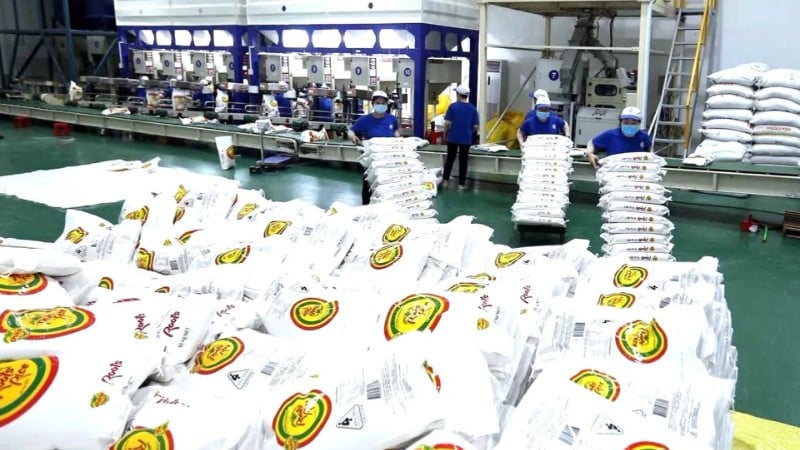
From a poor country, Vietnam has risen to become one of the world 's agricultural production and export powers. Agriculture is a national advantage, bringing income to nearly 10 million farming households and millions of business households and enterprises. The agricultural and environmental sectors not only ensure a solid food security, ecological safety in all situations but also contributes to enhancing Vietnam's position in the international arena.
Important milestones
On November 14, 1945, the Government Council issued a Resolution on the establishment of the Ministry of Agriculture with the task of organizing agricultural production in a systematic manner. Since then, November 14 has become the traditional day of the agricultural and environmental sectors.
Over the past 80 years, along with the country's development, the agricultural and environmental sectors have also experienced many ups and downs, but have always played a strategic role, being a pillar in times of difficulty and change for the country.
At the same time, the Party and the State have always paid special attention to this important field. Many important policies and guidelines of the Party and the State such as: Directive No. 100-CT/TW dated January 13, 1981 of the Secretariat on "Improving the contracting work, expanding "product contracting to labor groups and workers" in agricultural cooperatives"; Resolution No. 10-NQ/TW dated April 5, 1988 of the Politburo on innovation in agricultural economic management have created enormous and turning-point impacts on Vietnamese agriculture in the context of the severe economic crisis of that period, not only solving the urgent problem of food but also paving the way for comprehensive innovation of the country's economy, bringing Vietnamese agriculture into a new stage of development.
On August 5, 2008, the 10th Party Central Committee issued Resolution No. 26-NQ/TW “On agriculture, farmers, and rural areas”. For the first time, the issue of “agriculture, farmers, and rural areas” was placed at the center of the national development strategy with the viewpoint that “agriculture, farmers, and rural areas are the foundation and important force for rapid and sustainable socio-economic development”. The Resolution has oriented the development strategy of “agriculture, farmers, and rural areas” in the new period, aiming to make Vietnam a high-income developed country by 2045.
In 2022, the 5th Conference of the 13th Party Central Committee issued Resolution No. 19-NQ/TW "On agriculture, farmers, and rural areas to 2030, with a vision to 2045", affirming that agriculture, farmers, and rural areas have a strategic position in the cause of industrialization and modernization of the country. Agriculture is the advantage and sustainable foundation of the country, rural areas are an important economic development area, a key space associated with natural resources, cultural and social foundations, ensuring security and national defense of the country. Farmers are an important labor force and human resource.
Issues of agriculture, farmers and rural areas must be resolved synchronously, in conjunction with the process of accelerating industrialization and modernization of the country. Agricultural development must be based on the viewpoint of ecological agriculture, modern countryside, and civilized farmers. Environmental protection and climate change response continue to be national priorities.
To great achievements
Continuing the achievements since the renovation, despite many difficulties and challenges due to natural disasters, climate change and market fluctuations, Vietnam's agricultural production has still grown rapidly and continuously, with an average rate of 3.56% per year.
Background agriculture Vietnam has shifted from self-sufficiency to diversified commodity production and become a leading agricultural exporter in the world, with Vietnamese agricultural products exported to more than 200 countries and territories. Agricultural export turnover has increased rapidly over the years, at an average rate of over 10% per year, reaching 62.5 billion USD by 2024, with a trade surplus reaching a record 18 billion USD, up nearly 70% compared to 2020. Agricultural, forestry and fishery export turnover in the first 10 months of this year reached 58.13 billion USD, up 12.9% over the same period, and is expected to reach about 70 billion USD for the whole year.
The National Target Program on New Rural Development has fundamentally changed the face of rural areas. To date, 78.7% of communes nationwide have met new rural standards, of which 40.4% have met advanced standards and 10.8% have met model standards. In 2024, the average income per capita in rural areas will reach 54 million VND, an increase of 1.3 times compared to 2020. Environmental protection, resource management and climate change response have achieved many important achievements, contributing to the country's sustainable development goals. The country's resources are planned, exploited and used reasonably. Seas and islands are managed according to a comprehensive, inter-sectoral and inter-regional approach, contributing to the sustainable development of the marine economy, making Vietnam a strong maritime nation.
Vietnam is entering new era with the orientation of rapid and sustainable development, linking economic growth, social progress and environmental protection, while focusing on building a green, circular economy, adapting to climate change, aiming to become a high-income developed country by the middle of the 21st century. The new context with intertwined opportunities and challenges requires the agricultural and environmental sectors to have appropriate policy orientations, contributing to the realization of the double-digit growth target of the entire economy.
In particular, agriculture is truly a national advantage, firmly ensuring food and nutrition security, improving people's income and living standards, closely linked to the task of preserving culture, protecting the environment, conserving biodiversity and proactively adapting to climate change. Continue to strongly shift from the mindset of "agricultural production" to "agricultural economy", transforming towards green, sustainable, multi-value.
Increase investment in development and application of science and technology, create strong momentum to develop agricultural economy towards green economy, circular economy, emission reduction, digital transformation associated with ecosystem restoration and environmental protection. This is not only an immediate requirement but also the foundation for sustainable development of Vietnam's agriculture and environment in the future.
Source: https://baoquangninh.vn/de-nong-nghiep-that-su-la-loi-the-quoc-gia-3384144.html


![[Photo] Highways passing through Dong Nai](https://vphoto.vietnam.vn/thumb/1200x675/vietnam/resource/IMAGE/2025/11/12/1762940149627_ndo_br_1-resize-5756-jpg.webp)



![[Photo] Prime Minister Pham Minh Chinh attends a conference to review one year of deploying forces to participate in protecting security and order at the grassroots level.](https://vphoto.vietnam.vn/thumb/1200x675/vietnam/resource/IMAGE/2025/11/12/1762957553775_dsc-2379-jpg.webp)

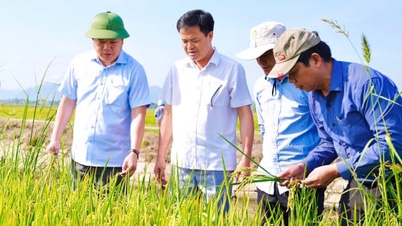

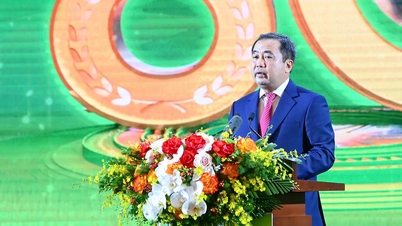

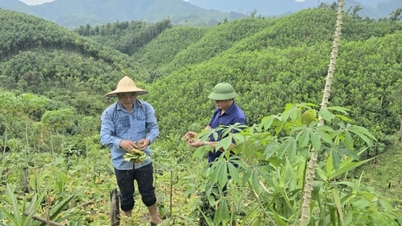


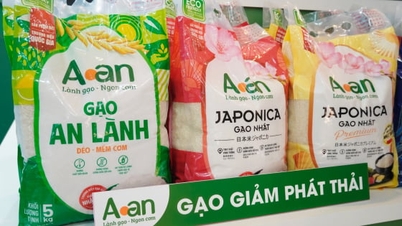

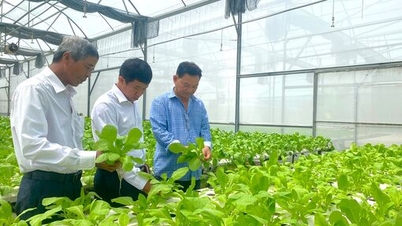


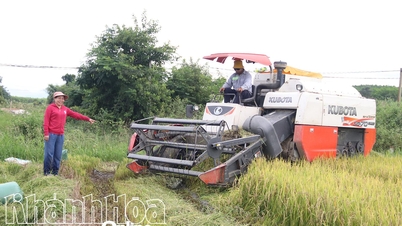



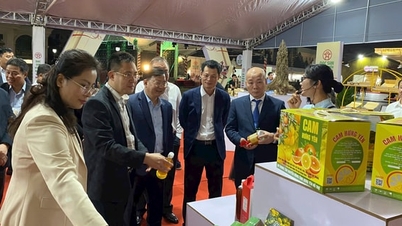

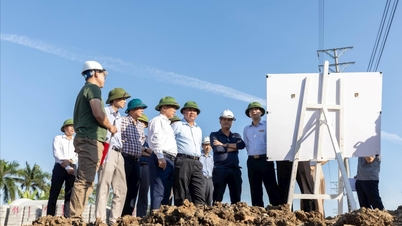









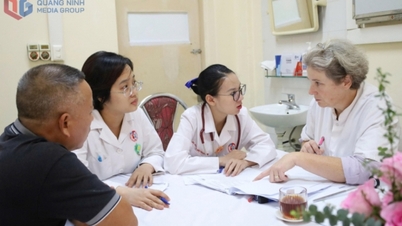


















































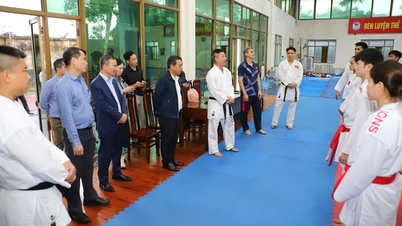




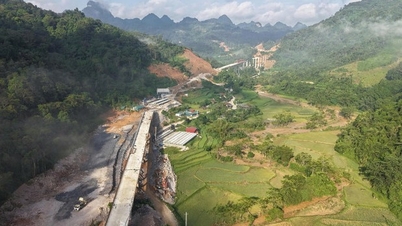
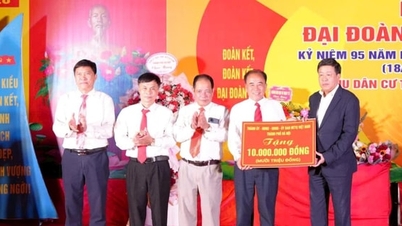
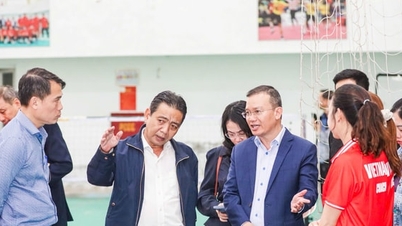





![Dong Nai OCOP transition: [Article 3] Linking tourism with OCOP product consumption](https://vphoto.vietnam.vn/thumb/402x226/vietnam/resource/IMAGE/2025/11/10/1762739199309_1324-2740-7_n-162543_981.jpeg)






Comment (0)